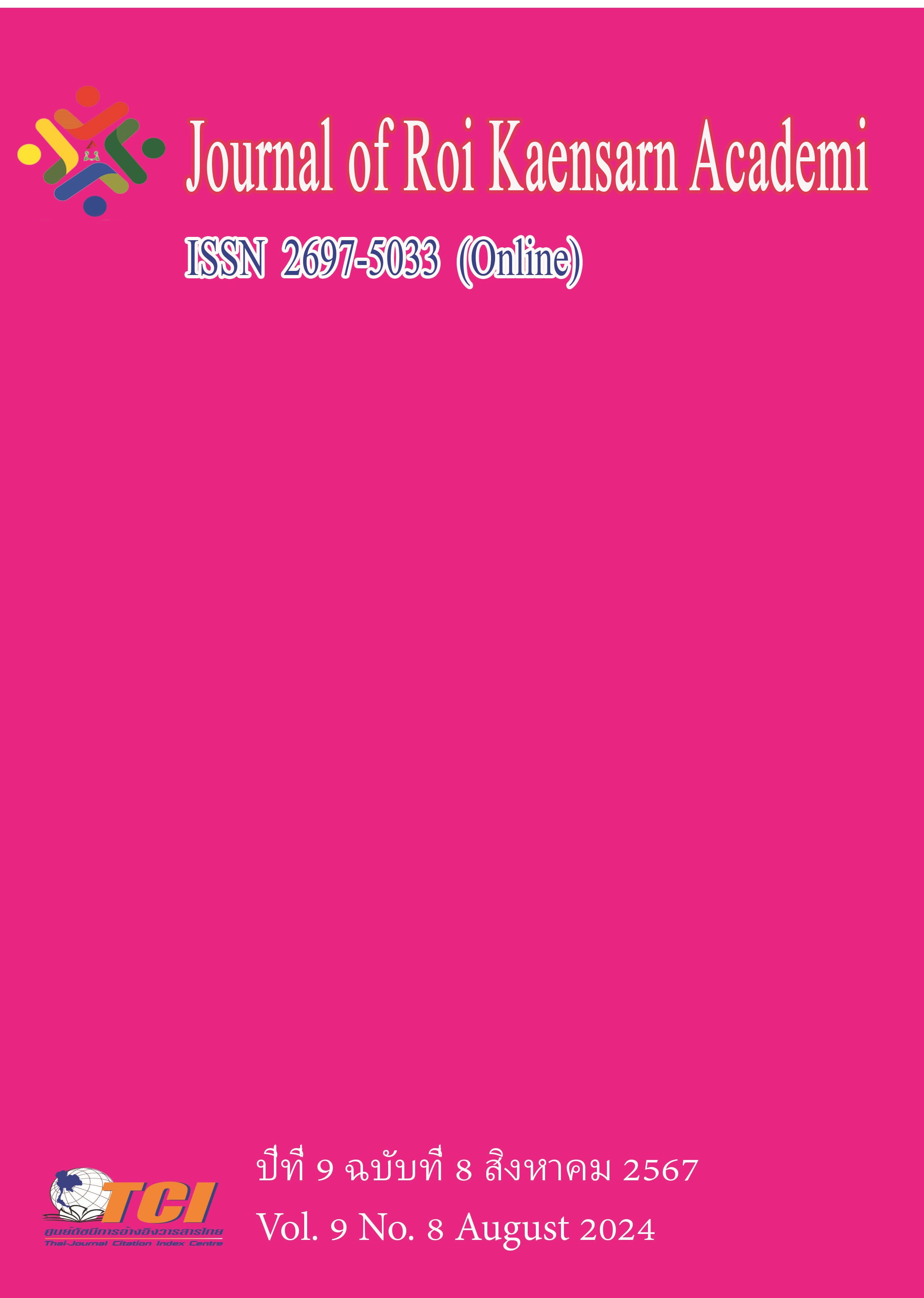The Impact of Customer Relationship Management, Digitalization, Green Practices, and service Responsiveness on Consumers' Revisit Intentions in Homestays in China
Main Article Content
บทคัดย่อ
Tourism has become a way of popular leisure and vacation, and homestays are loved by tourists for their unique style and personalized services. However, the factors influencing the willingness to revisit homestays are still unclear. This study aims to examines the impact of customer relationship management, digitalization, green practices, and service responsiveness on consumers' intention to revisit homestays. This study designed a questionnaire on consumers' revisit intentions in homestays, and collected data from 620 tourists who had used the services of homestays in Hunan Province as the study area, and explored the relationship between customer relationship management, digitization, green practices, and service responsiveness and the willingness to revisit homestays by constructing a structural equation model(SEM). The research indicates that customer relationship management, digitalization and service responsiveness significantly influence consumers' revisit intention; green practices has no significant influence on revisit intention; service responsiveness mediating the relationship between the other factors and revisit intention. The findings provide valuable insights for homestay operators, suggesting that enhancing customer relationship management, improving digital services, implementing environmental measures, and focusing on responsiveness can effectively increase consumers' likelihood of returning. These strategies contribute to the sustainable development of the homestay industry by optimizing management practices and enhancing overall service quality.
Article Details
เอกสารอ้างอิง
Alt, R., Reinhold, O., Alt, R., & Reinhold, O. (2020). Social CRM: Challenges and perspectives. In Social Customer Relationship Management: Fundamentals, Applications, Technologies (81-102).
Aritama, A. A. N., & Diasana Putra, I. (2021). Tourism activities in the traditional Balinese house: The challenges of designing a homestay in Gianyar Bali. Journal of Social and Political Sciences. 4 (1).
Beritelli, P., Reinhold, S., & Luo, J. (2019). “How come you are here?” Considering the context in research on travel decisions. Journal of Travel Research. 58 (2), 333-337.
Blumberg, B., Cooper, D., & Schindler, P. (2014). EBOOK: Business research methods. McGraw Hill.
Buttle, F., & Maklan, S. (2019). Customer relationship management: Concepts and technologies. Routledge.
Casaló, L. V., Flavián, C., & Guinalíu, M. (2010). Determinants of the intention to participate in firm-hosted online travel communities and effects on consumer behavioral intentions. Tourism Management. 31 (6), 898-911.
Cooper, D. R., & Schindler, P. S. (2003). Business research methods.
Dattalo, P. (2008). Determining sample size: Balancing power, precision, and practicality: Pocket Guide to Social Work Research Methods.
Gao, B., Li, X., Liu, S., & Fang, D. (2018). How power distance affects online hotel ratings: The positive moderating roles of hotel chain and reviewers’ travel experience. Tourism Management. 65, 176-186.
Gunasekaran, A., Lai, K.-h., & Cheng, T. E. (2008). Responsive supply chain: A competitive strategy in a networked economy. Omega. 36 (4), 549-564.
Gupta, V., Sajnani, M., Dixit, S. K., Mishra, A., & Gani, M. O. (2023). Are consumers influenced by the use of green practices in five-star hotels: An assessment of guest's revisit intentions, inclusive ratings and hotel performance. International Journal of Tourism Cities. 9 (1), 159-181.
Guttentag, D. (2015). Airbnb: Disruptive innovation and the rise of an informal tourism accommodation sector. Current Issues in Tourism. 18 (12), 1192-1217.
Hair, J. F., Risher, J. J., Sarstedt, M., & Ringle, C. M. (2019). When to use and how to report the results of PLS-SEM. European Business Review. 31 (1), 2-24.
Jun, S.-H. (2020). The effects of perceived risk, brand credibility and past experience on purchase intention in the Airbnb context. Sustainability. 12 (12), 5212.
Mertler, C. A., Vannatta, R. A., & LaVenia, K. N. (2021). Advanced and multivariate statistical methods: Practical application and interpretation. Routledge.
Molz, J. G. (2013). Social networking technologies and the moral economy of alternative tourism: The case of couchsurfing.org. Annals of Tourism Research. 43, 210-230.
Muangmee, C. (2020). Relationship marketing and perception service quality model of business operator of homestays in Samut Sakhon Province of Thailand. Revista Argentina de Clínica Psicológica. 29 (5), 966-976.
Palazzo, M., Foroudi, P., & Ferri, M. A. (2021). Examining antecedents and consequences of perceived service quality in the hotel industry: A comparison between London and New York. The TQM Journal. 33 (7), 193-221.
Pranita, D. (2018). Digitalization: The way to tourism destination’s competitive advantage (Case study of Indonesia marine tourism). KnE Social Sciences, 243-253.
Sachdeva, G. (2020). Tools and techniques used for customer relationship management: Review and case studies. In Strategies and Tools for Managing Connected Consumers (pp. 232-251). IGI Global.
Sota, S., Chaudhry, H., & Srivastava, M. K. (2020). Customer relationship management research in hospitality industry: A review and classification. Journal of Hospitality Marketing & Management. 29 (1), 39-64.
Wahid, S. N. S., Dangi, M. R. M., Jabar, F., Muhamed, M., & Paino, H. (2017). Effect of tangibility and reliability service quality towards homestay customer satisfaction. Journal of Tourism, Hospitality and Environment Management. 2 (5), 44-53.
Zhang, K., Jia, N., Zheng, L., & Liu, Z. (2019). A novel generative adversarial network for estimation of trip travel time distribution with trajectory data. Transportation Research Part C: Emerging Technologies. 108, 223-244.

